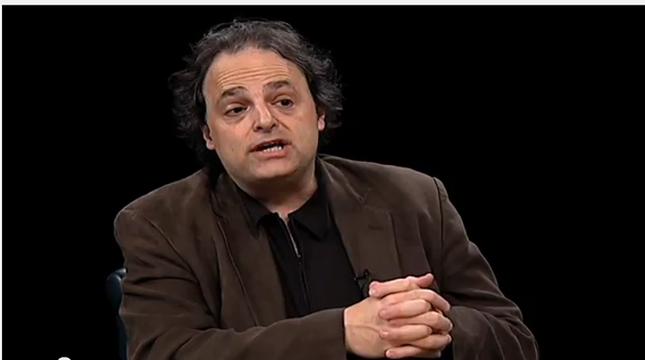60 Artistic Directors Protest Firing of Theater J’s Roth
By • January 5, 2015 0 1277

Ari Roth may no longer be the artistic director of Theater J, but the reactions to his firing by the D.C. Jewish Community Center in mid-December continued all through Hanukkah and Christmastime.
Roth was, according to reports in the Washington Post, fired by Carole Zawatsky, CEO of the JCC, on Dec. 18, with the stated cause being “insubordination.”
Roth had been the artistic director of Theater J for 18 years, years in which he grew the theater—which is a part of the D.C. Jewish Community Center—into a formidable force among Washington theaters, but also nationally as a prominent company presenting Jewish theater.
Theater J and Roth received accolades for the many Jewish-themed and Jewish-authored plays—the Arthur Miller canon, including a dramatic production of “The Price,” starring the late Robert Prosky and two of his sons. The theater found a wide audience throughout the region. Roth encouraged new plays and playwrights, including an original, ground-up musical based on the life of King David, and foraged for plays that centered often on plays with political and issue-oriented themes.
No one questioned Roth’s artistic prowess and his abilities as an artistic leader—even Sawatsky, in the initial burst of information about Roth leaving, said that “Ari Roth has had an incredible 18-year tenure leading Theater J, and we know there will be great opportunities ahead for him. Ari leaves us with a vibrant theater that will continue to thrive.”
Roth, in a statement reported by Post drama critic Peter Marks, made it clear that he was “terminated abruptly.”
In building Theater J’s reputation as an outstanding theater, Roth was often the flashpoint for controversy, especially when dealing with plays that focused on Israel’s political history. One such play was “Return to Haifa,” a play by Israeli playwright Boaz Gaon focusing on the plight a Palestinian family which returned to their old home in Haifa abandoned in the wake of the 1948 War for Independence. The play was performed by the Cameri Theatre of Tel Aviv, a company composed of Israeli and Palestinian actors. At an opening night production in 2011, some older members of the audience complained vocally about the play and its sympathetic treatment of the Palestinian characters.
Another Roth innovation, the Voices from a Changing Middle East festival was sometimes criticized for its political content and was not on the schedule this year. Another controversial play by another Israeli playwright Motti Lerner, “The Admission,” which was about an alleged massacre which occurred in a Palestinian village in 1948, was pared down to a staged reading.
When news came of Roth’s firing, the national artistic community responded quickly.
Playwright Tony Kushner of “Angels in America” fame, whose play “The Intelligent Homosexual’s Guide to Capitalism and Socialism with a Key to the Scriptures” was Theater J’s second production this season, wrote that Roth “was fired because he refused to surrender to censorship.” In all, artistic directors of 60 national theater companies protested the firing in an open letter — including Robert Falls of the Goodman Theatre in Chicago, Joe Dowling of the Guthrie Theater in Minnesota, and Howard Shalwitz of the Woolly Mammoth Theatre and Michael Kahn of the Washington Shakespeare Company in Washington.
Roth is reportedly organizing planning for a new theater company, which he will lead called the Mosaic, which may begin performing at the Atlas Performing Arts Center on H Street in the fall.
In a letter to the arts community, Zawatsky, in part, wrote, “I want to assure you that DCJCC will continue to support Theater J as a vibrant, creative and provocative outlet for great theater. Our commitment to Theater J is as strong as ever and we will resist efforts to politicize our output.
“Ari’s creative vision—which included significant works of a political nature—were always defended and supported by Theater J and DCJCC. Our commitment to that never wavered. But Ari’s failure to maintain basic professional conduct and standards made it impossible to continue his employee relationship of the DCJCC.”

